2023 Summer College Speakers
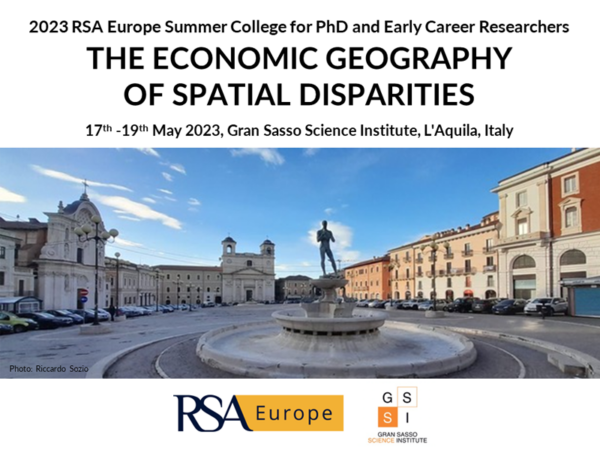
“Spatial disparities in the developed world: concepts, data and evidence” – Paolo Veneri, GSSI, L’Aquila, Italy
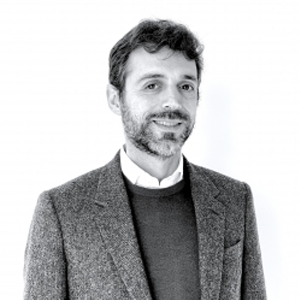
Paolo Veneri is Professor of Economic Policy at the Gran Sasso Science Institute. Prior to that position he was Deputy Head of the Economic Analysis, Data and Statistics Division at the OECD Centre for Entrepreneurship, SMEs, Regions and Cities. At the OECD he led the OECD programme on subnational analysis and statistics and the OECD Geospatial Lab. He was Secretary of the Working Party on Territorial Indicators. Paolo has led research on a wide range of topics connected to urban and regional development, including on measuring urbanisation, understanding spatial economic and well-being inequalities, and the role of migration for regional development. Paolo holds a PhD in Economics from the Marche Polytechnic University and he has published numerous papers in academic journals, especially in the field of urban and regional economics. He was an external professor of Urban and Regional Economics at the Paris Dauphine University. He also authored several OECD flagship publications including “Cities in the World. A New perspective on urbanisation” (2020), “Regions and Cities at a Glance” editions, “Divided Cities” (2018), “The Geography of Firm Dynamics” (2017), “Making cities work for all” (2016), “How’s Life in your Region?” (2014) and “Rural-urban partnerships: an integrated approach to economic development” (2013).
Abstract
Based on recent international comparative evidence, the session will provide an overall picture of trends in spatial socio-economic disparities within and across developed countries. The presentation will introduce the statistical definitions and indicators to understand spatial disparities, their multidimensional nature, persistence over time and main drivers. The presentation will focus on past trends and future challenges that regions and cities will face in the light of current megatrends, such as digitalization, demographic change, and continuing urbanisation. The topics treated in the presentation include the spatial implications of current changes in housing demand, adoption of remote working, and energy crisis. The presentation will also discuss the rationale for policy makers to tackle spatial disparities.
“Promoting growth in all types of regions: challenges and approaches” – Lewis Dijkstra, European Commission, Brussels, Belgium
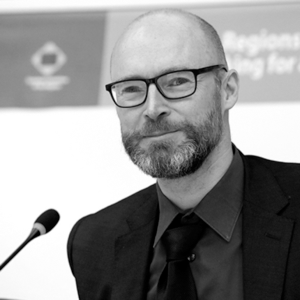
Lewis Dijkstra is the Head of the Economic Analysis Sector of the Directorate-General for Regional and Urban Policy in the European Commission. He is the editor of the Cohesion Report, which analyses issues and trends in EU regions and cities. He is a visiting professor in practice at the London School of Economics and Political Science, a Penn Institute for Urban Research Scholar and a Fellow of the Regional Studies Association. He holds a PhD in Urban and Regional Planning from Rutgers University, New Jersey, an MSc in Urban and Regional Planning from the London School of Economics and Political Science and a BA in Political Science from the University of Ghent, Belgium.
Abstract
This presentation will cover new analysis by the European Commission focussing on regional competitiveness, demographic change, development traps and the geography of discontent. It will highlight how less developed, transition and more developed regions have changed over the past two decades and how they have been affected by the economic crisis and the covid pandemic. It will show how regional competitiveness is concentrated in capital city regions and that in more competitive countries the gaps between regions are smaller. As the EU population continues to age and will start to shrink in the coming years, the discussions of regional demographic change have intensified. This presentation will underline how most of those changes are embedded in the current age structure and cannot be avoided. As a result, regions need to prepare to respond to these changes and not pretend they can alter them. Finally, the presentation will show which regions risk to get stuck in a development trap and the consequences of such a trap for Eurosceptic voting.
“Geographic data science” – Elisabetta Pietrostefani, LSE, London, UK
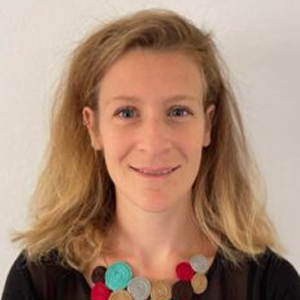
Elisabetta is a Lecturer in Geographic Data Science at the Geographic Data Science Lab at the University of Liverpool. As a quantitative urban geographer, she is interested in applying data and technologies to improve the understanding of urban development and inequalities. Currently, she is combining spatial survey data collected in 2018 and 2021 in Lebanon with satellite imagery measuring the degree of damage of buildings, to investigate the effects of the 4th of August Beirut Blast on vulnerability and inequality indicators. This research exploits machine learning models to predict the relationship between morphological indices and socio-economic indicators building on the rapid increase of spatial and temporal coverage of satellite data. Elisabetta is a Guest Lecturer at the London School of Economics where she completed her PhD in Planning Policy and Urban Economics in 2019. She was also previously a Research Fellow at the Institute for Global Prosperity at University College London, where her research focused on assessing well-being and inequalities in contexts of mass displacement. She has also consulted for international agencies such as the OECD, UN-Habitat and UNHCR.
Abstract
Geographical Data Science offers the social scientist an array of tools for generating, manipulating, and visualising spatial data. This session will demonstrate some practical data science techniques such as machine learning, web-scraping and text data mining which can be leveraged by regional scientists to augment and enhance their research. Attention will also be given to critical reflection upon the nature of the data used, its opportunities and limitations. Students will be encouraged to think about the role of “new” forms of spatial data (vs. traditional forms of data) in developing evidence to support policymaking and practice. Examples of literature with applications in economic geography and regional science will be provided.
“Measures & estimation with sociocultural variables” – Daria Denti, GSSI, L’Aquila, Italy
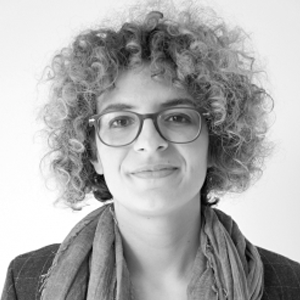 Daria Denti, Economist, is Assistant Professor at the Gran Sasso Science Institute, L’Aquila, Italy and Visiting Fellow at the London School of Economics. Her research focuses on spatial investigation of deprivation of vulnerable groups, the socioeconomic determinants of violence, and public policy to protect vulnerable groups. She served as principal investigator in a European Commission Joint Research Center project on cities and vulnerable groups. Also, she was project investigator in the H2020 DISCE “Developing Inclusive and Sustainable Creative Economies”. Her research appeared various journals including The Cambridge Journal of Regions, Economy and Society, The Journal of Economic Behavior & Organization, The Journal of Cultural Economics and the Journal of Regional Science. Her PhD thesis won the 2020 Regional Science Association International Best Dissertation Award.
Daria Denti, Economist, is Assistant Professor at the Gran Sasso Science Institute, L’Aquila, Italy and Visiting Fellow at the London School of Economics. Her research focuses on spatial investigation of deprivation of vulnerable groups, the socioeconomic determinants of violence, and public policy to protect vulnerable groups. She served as principal investigator in a European Commission Joint Research Center project on cities and vulnerable groups. Also, she was project investigator in the H2020 DISCE “Developing Inclusive and Sustainable Creative Economies”. Her research appeared various journals including The Cambridge Journal of Regions, Economy and Society, The Journal of Economic Behavior & Organization, The Journal of Cultural Economics and the Journal of Regional Science. Her PhD thesis won the 2020 Regional Science Association International Best Dissertation Award.
Abstract
There is increasing interest in regional science and economic geography on the role of culture—defined in terms of local beliefs, values and expectations—in shaping the socioeconomic development of places. Similar interest exists regarding observed behaviours, such as voting preferences, resentment, and social unrest.
This growing attention is complemented with research on the suitable ways to measure cultural and behavioral features and on the empirical challenges related to their inclusion in econometric models. This lecture will discuss approaches used to measure cultural and behavioral features. Also, it will provide practical approaches to address the empirical challenges related to the applied investigation of sociocultural aspects.
“Peripheral local development: the case of craft beers” – Neil Reid, University of Toledo, USA
 Neil Reid is Professor of Geography in the Department of Geography and Planning at the University of Toledo. He is an economic geographer, whose most recent research has focused on change taking place in the American brewing industry. In particular, it has sought to understand the role of craft breweries as an industry disruptor. With regard to craft breweries, he has been interested in understanding their spatial dynamics at both the inter- and intra-urban scales, as well as how they have affected urban neighbourhoods with respect to adaptive reuse of abandoned buildings, neighbourhood change, real estate values, crime rates etc. His research on this topic appears in a range of journals including The Professional Geographer, Applied Geography, Growth and Change, and Papers in Regional Science.
Neil Reid is Professor of Geography in the Department of Geography and Planning at the University of Toledo. He is an economic geographer, whose most recent research has focused on change taking place in the American brewing industry. In particular, it has sought to understand the role of craft breweries as an industry disruptor. With regard to craft breweries, he has been interested in understanding their spatial dynamics at both the inter- and intra-urban scales, as well as how they have affected urban neighbourhoods with respect to adaptive reuse of abandoned buildings, neighbourhood change, real estate values, crime rates etc. His research on this topic appears in a range of journals including The Professional Geographer, Applied Geography, Growth and Change, and Papers in Regional Science.
Abstract
Between 1994 and 2023, the number of craft breweries in the United States increased from 535 to over 9,000 craft breweries. As craft breweries became increasingly ubiquitous, planners and economic development practitioners recognized the important role they could play in fostering local economic development. In particular, they can contribute to the revitalization of what Weiler (2020) refers to as “economically peripheral locations”. The regenerative power of craft breweries lies in the fact that they engage in adaptive reuse of abandoned buildings, function as community gathering spots (Third Places), attract beer tourists, signal to other investors the potential of a location, and promote a strong sense of local identity. The purpose of this presentation is to highlight the role that craft breweries can play in the revitalization of peripheral locations.
“Evaluation of EU Cohesion policy: the case of investments in research and innovation” – Silvia Vignetti, CSIL, Milan, Italy

Abstract
Cohesion Policy is the most evaluated policy in the European Union and the exercise of evaluating it is commonly regarded as an inspiring example for the evaluation of public policies. Yet evaluating Cohesion Policy poses many challenges. Not only it should reflect the multiple levels of governance characterising Cohesion Policy, it is also expected to fulfil different functions, from accountability to policy learning. It is also instrumental in developing result orientation in the design and implementation of the policy, moving away from a more traditional “spending logic”. This presentation discusses the role of evaluation in the EU Cohesion Policy. It presents and assesses the EU rules shaping evaluations and their implementation at the EU and Member State levels. It also illustrates the methodology and main findings of the evaluation of investments in research and technological development infrastructures and activities supported by the European Regional Development Funds (ERDF) in the period 2007-2013.
“Migration” – Michel Beine, University of Luxembourg, Luxembourg
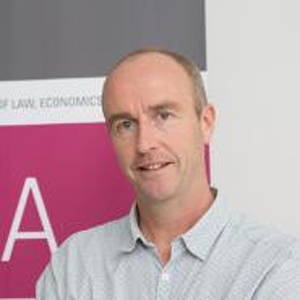
“Research papers: From design to publication” – Adriana Pinate & Maria Giovanna Brandano GSSI, L’Aquila, Italy

Adriana Carolina Pinate is Assistant Professor in Applied Economics at the GSSI from 2023. Her research focus on the use of robust econometric data and spatial modelling in the field of regional economics, economic geography and behavioural economics, onto related main topics: (i) technological innovation, environmental sustainability and pro-environmental behavior; (ii) human capital, migration and institutional quality.

Maria Giovanna Brandano is Assistant Professor in Applied Economics at the GSSI from 2019. Before she has been post-doc at the Free University of Bolzano and at the University of Sassari and CRENoS (Centre for North South Economic Research). Her main research interests are related to tourism economics and policy evaluation.
Abstract
The presentation intends to provide the first information on the publication process in an academic peer-reviewed journal.
The lecture will focus on: i) how structuring the paper starting from a research question; ii) which are the core structural components of a paper, iii) the selection of “the right” journal for submission, iv) how to address journal editors and referees.
“Public research and regional impact” – Martina Dal Molin & Laura Ciucci, GSSI, L’Aquila, Italy

Martina Dal Molin is currently Assistant Professor at the Area of Social Science at GSSI. She hold a Ph.D. in Institutions, Administration and Regional Policies from the University of Pavia. Her research interests are policy evaluation, evaluation of Third Mission activities, evaluation of research impact on the regional and national level and human capital migration.

Laura Ciucci is a post-doc in Economics at the Gran Sasso Science Institute (L’Aquila, Italy) and an associated researcher at the Centre for North-South Economic Research (CRENoS). Previously, she was a post-doctoral fellow at the University of Bordeaux (France) and the University of Sassari (Italy). Her research interests include the analysis of the local impact of universities and their strategies in terms of research valorisation and student attractiveness.
Abstract
The lecture aims at providing an in depth understanding of the role of universities and public research centers in the knowledge-based society and, more in general, the socio-economic impact generated by publicly funded basic and applied research. The final aim is at understanding, analyzing, measuring and assessing the impact of public research (i.e universities, research centres and Research Infrastructures) for a wide set of stakeholders.
Professional Development Sessions, Career Development Opportunities with the RSA and Promoting your Publication to Generate Impact – Daniela Carl, Regional Studies Association, UK
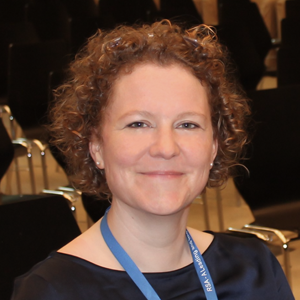
Daniela is the Deputy Chief Executive at the Reginal Studies Association, and her work focusses on business development and global partnerships, the association’s membership, academic journals, conferences/events, professional development and knowledge exchange. Her academic background ranges from anthropology, business studies, geography, geology to soil science. Eventually, she specialised in Cultural and Tourism Geography focusing on the impact of popular culture on perceptions, identity and tourism. Before joining the RSA, Daniela worked in research and business development roles at universities and research centres in Germany, New Zealand and the UK, as freelance events and tourism consultant and tourism management lecturer.
Session details
Career Development Opportunities with the RSA – The RSA and its European Foundation RSA Europe provide an array of support and career development initiatives specifically designed for PhD students and early career researchers. In this session, Daniela will introduce you to membership benefits such as publishing platforms and support, open networks, research funding and awards, training and capacity building opportunities with the RSA and RSA Europe.
Promoting your Publication to Generate Impact – Publishing in academic journals is often crucial to academic career progression. With over 2.5 mio. articles published annually in around 27,000 peer-reviewed journals it is important to make the most of your publication to generate impact and citations. In this session, Daniela will share practical tips on how to promote your academic profile and publications and here particularly how to promote your journal articles to increase readership, downloads and impact.
The Case for Place-Based Policy, Philip McCann, University of Manchester, UK

Professor Philip McCann holds the Chair in Urban and Regional Economics at The Productivity Institute, Alliance Manchester Business School, University of Manchester. He is one of the world’s most highly cited spatial economists and economic geographers and has won eight national and international awards for his research. He has previously been a Special Adviser to two EU Commissioners for Regional and Urban Policy, and regularly advises bodies such as the OECD, the European Commission, United Cities and Local Government, and government institutions in the UK as well as in various other countries.
Abstract
My talk will examine shifting arguments regarding the case for so-called ‘people-based’ versus ‘place-based’ policies, in the context of regional divergence and environmental pressures. The talk will examine the history of these ideas, the evidence on these issues, and the contemporary challenges these issues raise in terms of the Green Deal agenda, both in Europe and North America.
